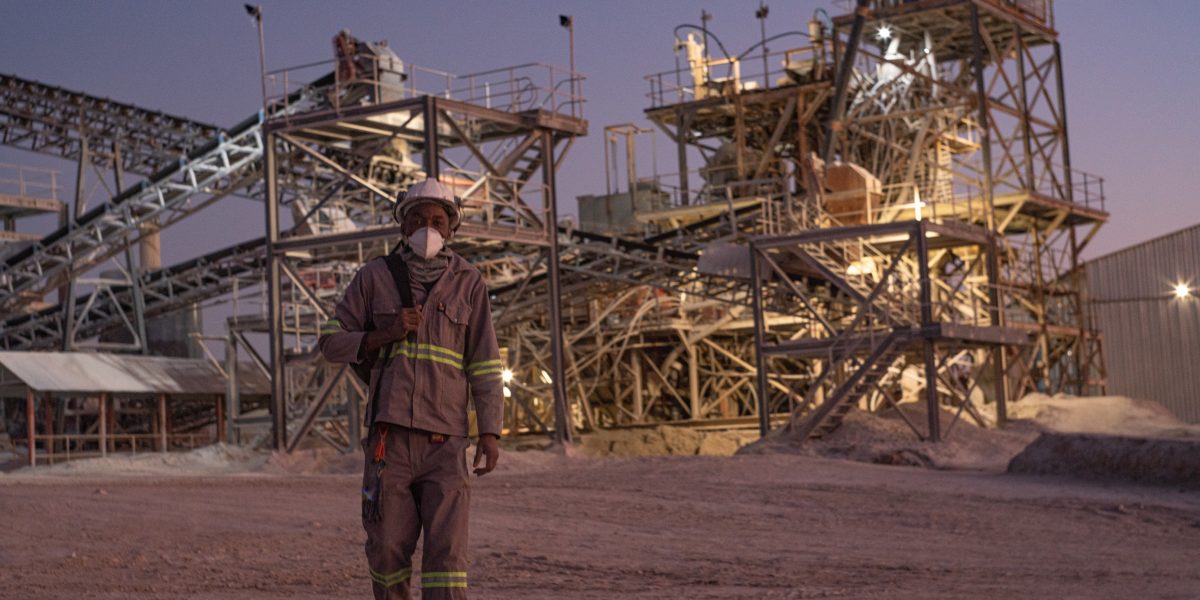After listing on the London Stock Exchange (AIM) in 2017, AfriTin’s strategic objective has morphed from being the tin champion of Africa to setting its sights on becoming Africa’s technology metal champion. The progress and development of the Uis tin mine has presented AfriTin with significant expansion possibility and opportunity to unlock further mineral potential in the wider Erongo region.
The Uis tin mine, which was formerly owned by Iscor, ceased operations in the 1990’s due to declining tin prices. The mine was brought back into production in 2018, which commenced with the development of the Phase 1 pilot plant and successfully achieved nameplate capacity in November 2020 of 720 tonnes per annum.
The green revolution is driving increased demand for battery minerals, including tin, and AfriTin is positioned to continue the expansion of the Phase 1 pilot plant amidst a favourable market for tin and rapidly increasing prices. Further expansion is scheduled for completion in the second quarter of 2022 and production is set to increase by 67% to 1,200 tonnes per annum.
The African metallogenic jewel that is the Damara Belt houses AfriTin’s 225km2 licence area. Mining takes place across the V1 and V2 pits, but with more than 180 mineralised pegmatites mapped within a 5km area of the current operation, there is significant opportunity to scale up. Beyond Uis, production capacity stretches beyond to the two ore bodies, towards Brandberg West and Nai-Nais. Confirmatory test work and mapping has already commenced in these two areas which have thus far delivered promising results.
AfriTin’s focus has predominantly been on tin, however, the uncovered potential in surrounding areas present opportunities to develop other minerals. The recent demand for lithium in the use of battery storage technologies has prompted AfriTin to expand its mineral portfolio and review its strategy from producing lithium and tantalum as by-products to become a full-scale technology metals operation, that will produce tin, lithium and tantalum as major products. Significant progress has been made in this regard with the metallurgical test work which is underway for both tantalum and lithium as well as an 8,000 m drilling programme that is scheduled for completion in 2022.
With a robust balance sheet and a strong cash balance, which consists of project funding recently secured (N$90 million) from Standard Bank Namibia as well as an equity raise in May 2021, AfriTin is well placed to continue with the Phase 1 pilot plant expansion, regional exploration and the test work required for the lithium and tantalum by-products.
AfriTin’s vision to become the tech-metal champion of Africa is underpinned by sustainable impact and environmentally responsible strategies, which seek to contribute to the economic and social progression of surrounding communities and the wider Erongo region.
Contributed by AfriTin

